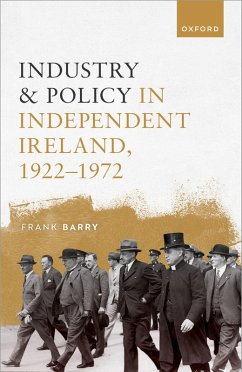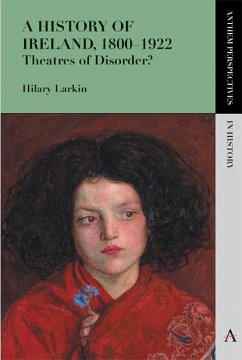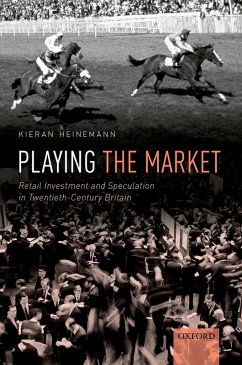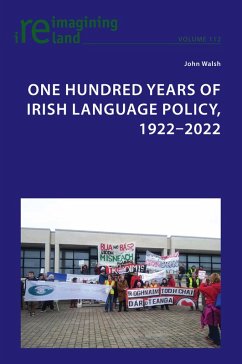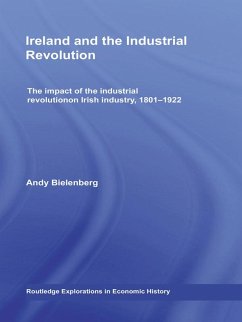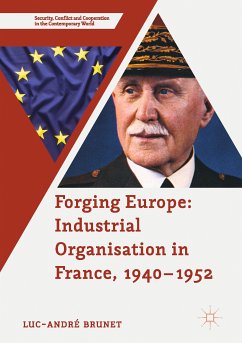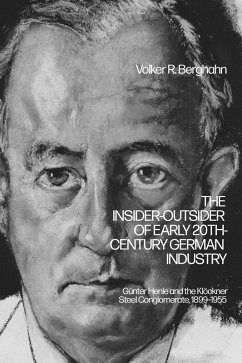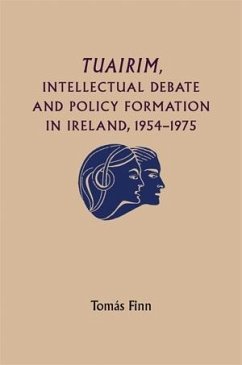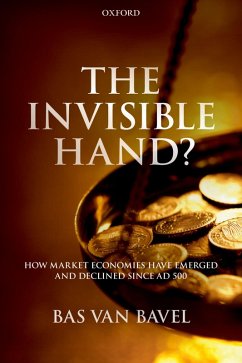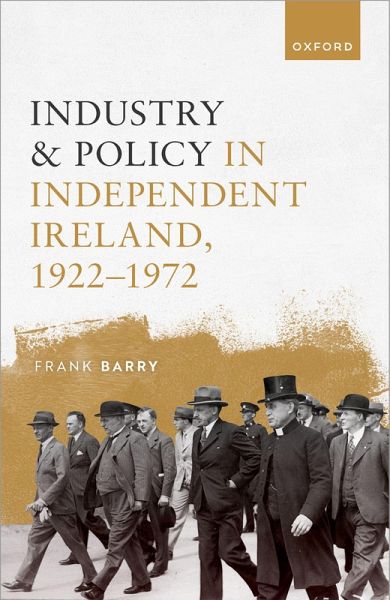
Industry and Policy in Independent Ireland, 1922-1972 (eBook, PDF)
Versandkostenfrei!
Sofort per Download lieferbar
47,95 €
inkl. MwSt.
Weitere Ausgaben:

PAYBACK Punkte
24 °P sammeln!
This book revisits the history of industry and industrial and economic policy in independent Ireland from the birth of the state to the eve of EEC accession. Though there were several manufacturing employers of significance, and smaller firms in operation in almost every major branch of industry, the Irish Free State was predominantly agricultural at its establishment in 1922. Industrial development was high on the nationalist agenda, as would be the case across the entire developing world in the later post-colonial era. Despite decades of protection, and a substantial increase in the size of ...
This book revisits the history of industry and industrial and economic policy in independent Ireland from the birth of the state to the eve of EEC accession. Though there were several manufacturing employers of significance, and smaller firms in operation in almost every major branch of industry, the Irish Free State was predominantly agricultural at its establishment in 1922. Industrial development was high on the nationalist agenda, as would be the case across the entire developing world in the later post-colonial era. Despite decades of protection, and a substantial increase in the size of the manufacturing sector, Ireland remained under-industrialised when it joined the European Economic Community in 1973. Over the previous decade and a half however the foundations of later convergence had been laid. Ireland was an early adopter of what would come to be known as dual-track reform. The policy of attracting outward-oriented foreign direct investment was initiated before substantial trade liberalisation began. By 1972 there had been a significant diversification in export categories and export destinations, and in the nationality of ownership of the leading manufacturing firms. Some of the most successful indigenous companies of the future were also beginning to emerge. In these and other respects the foundations of the economic progress that would be made over the course of EEC membership were already discernible, notwithstanding the post-accession collapse of most protectionist-era businesses. The analysis is supplemented by a unique firm-level database that allows for the identification of the leading manufacturing firms in operation at any stage from the early 1900s through to 1972. The database extends by more than 50 years the period for which estimates of the significance of foreign-owned industry can be provided.
Dieser Download kann aus rechtlichen Gründen nur mit Rechnungsadresse in A, B, BG, CY, CZ, D, DK, EW, E, FIN, F, GR, HR, H, IRL, I, LT, L, LR, M, NL, PL, P, R, S, SLO, SK ausgeliefert werden.




